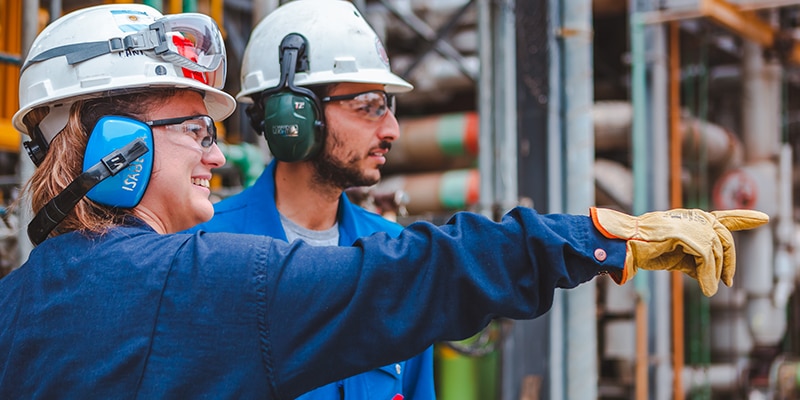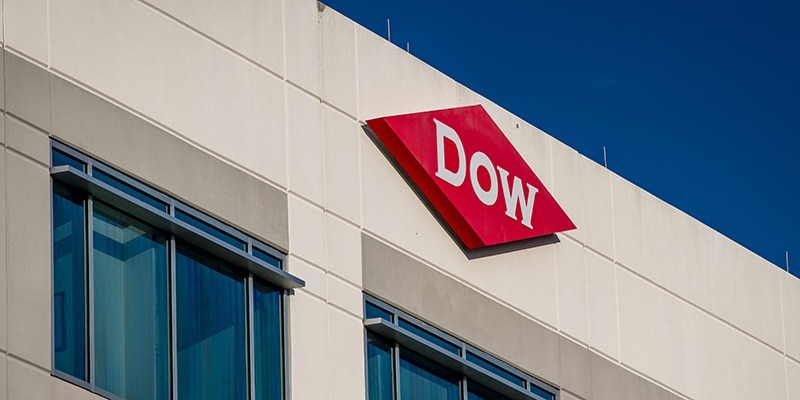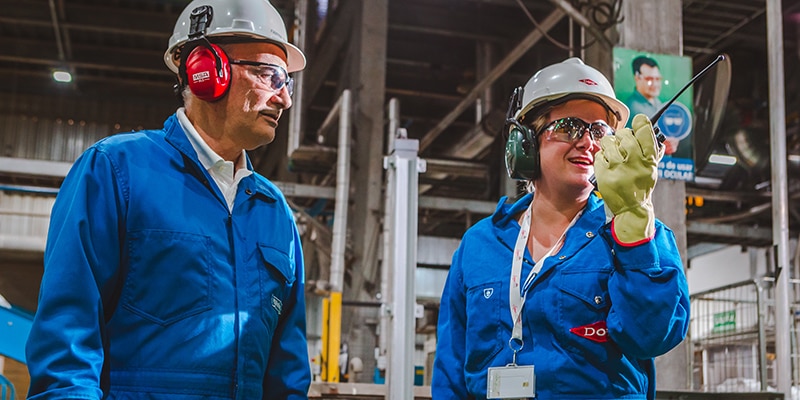From boyhood inventor to optimistic visionary, H.H. Dow had a mindset to always "do it better"
There was a new idea every morning from Herbert Henry Dow, founder of The Dow Chemical Company, according to the Company’s first patent department head. Those ideas, which eventually led him to more than 90 patents, grew from a lifelong curiosity and desire to solve problems – a passion that is deeply instilled into the Dow culture today.
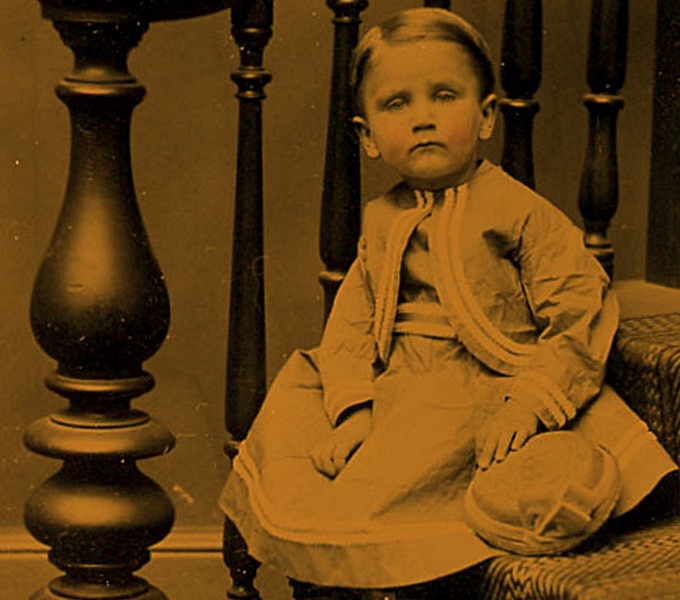 Herbert H. Dow, 1869, Age 3
Herbert H. Dow, 1869, Age 3Photo credit: Herbert H. and Grace A. Dow Foundation.
A Prolific Inventor from a Young Age
Before Herbert was a pioneer in electrochemistry, he showed a passion for science and a mind for business. Born in Ontario in 1866, Herbert spent his childhood first in Connecticut and later Ohio. His close relationship with his father likely influenced his eventual business successes. Joseph Henry Dow was a natural tinkerer, inventor and mechanical engineer. During his childhood, Herbert and his father constantly worked together to solve problems, which became the topic of conversations at the dinner table, according to Herbert’s sisters. His father often would bring home mechanical problems from his job, providing hands-on experience to accompany Herbert’s formal education. One of their inventions, a small steam turbine, would be used by the U.S. Navy for years to power torpedoes.
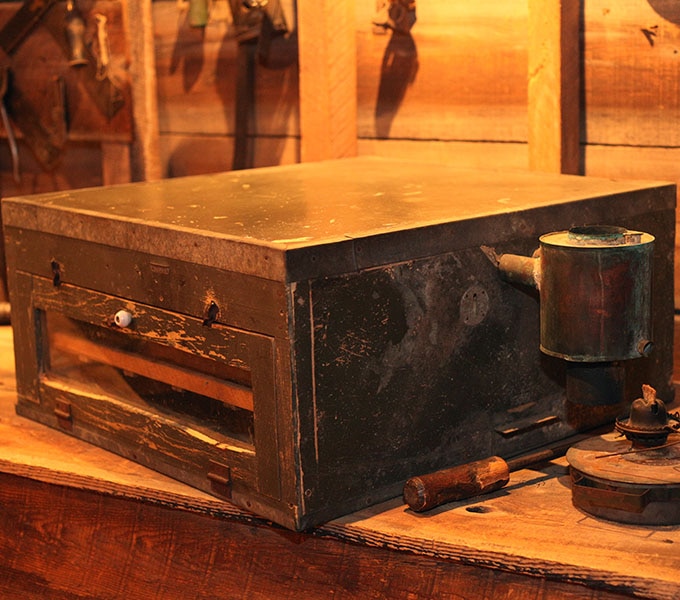 Vintage Incubator
Vintage IncubatorThis vintage incubator on display in the Herbert H. Dow Museum at the Midland County Historical Society is representative of the one young Dow invented at age 12. Museum volunteers use this artifact as a conversational teaching prop during school tours, to highlight his thought processes and personal drive.
Herbert’s first solo invention was an incubator for chicken eggs when he was 12. The idea came from a magazine article describing the problem of raising ostriches in South Africa. He found the main problem in incubating eggs was maintaining a constant temperature. Not willing to turn down a challenge, Herbert tried 39 times to develop an automated device. On the 40th try, he succeeded. When he learned that selling incubators likely wouldn’t be lucrative, he decided the most economical business model was to market plans for the incubator to prospective customers. Already, he was gaining the confidence he would need to be successful in the business world.
This confidence was put to the test about a decade later, when a rocky start to Herbert’s career could have derailed him as an entrepreneur and businessman. Instead, his instinctual drive to try, and try again, rocketed him beyond his mistakes. Herbert had a distinct mindset: He would never let his failures overcome him. He knew, that as long as he failed differently each time, there was still growth.
"Not willing to turn down a challenge, Herbert tried 39 times to develop an automated device. On the 40th try, he succeeded."
 Diploma
DiplomaHerbert H. Dow's diploma from the Case School of Applied Science hangs in the Herbert H. Dow Museum.
A Fortunate Change of Course
The Dow Chemical Company wouldn’t exist today without Herbert’s perseverance. As a student at the Case School of Applied Science (now Case Western University) in Cleveland, Herbert abandoned his first senior thesis, “A New Method for Mining Native Copper,” halfway through his last year of college after he became dissatisfied with how his research was progressing. Instead he began to study boiler fuels and their chemical composition. For a college project, he tested gas wells in Ohio and Midland, Michigan. One day, a worker gave him a sample of the bitter brine he had found while drilling. The encounter left an impression on Herbert, who seemed to grasp that a sea of chemical raw materials flowed not far below the Earth’s surface.
Not long after he graduated, Herbert came up with a more affordable method to extract bromine – which was used in medicines and photographic materials – from brine, and opened his first company, the Canton Chemical Company. It went bankrupt. The second, the Midland Chemical Company, opened in 1890. There he oxidized the brine by electrolysis, a method he also wanted to use to make sodium hydroxide and chlorine to be turned into bleach powder. His financial backers balked at his ideas for diversification and removed him from control. Realizing he would need a new company to move forward with the manufacture of chlorine, Herbert secured new investments and founded a third company, The Dow Chemical Company, in 1897.
Fearless Entrepreneurship
Sixteen years after commercializing bleach, Herbert exited the business. He saw far greater opportunity ahead – and was bold enough to seize it. One of Herbert’s most important strengths was the ability to recognize when to change course in order to continue growing. During his tenure, the Company transitioned from inorganic chemistry to producing organic chemicals, including phenol and indigo dye, and eventually to magnesium metal.
Now, more than 125 years later, Dow is a company that continues to be driven by its founder’s philosophy to “do it better.” Through the decades, Dow’s leaders have continually searched for better products, better ways to make them and a better understanding of the science that makes them possible. Inspired by this history of fearless entrepreneurship, the Company continues to reinvent itself to meet the opportunities of the era.
Learn more about H.H. Dow
Herbert H. Dow’s early life is well documented in several publications, including the book Growth Company: Dow Chemical’s First Century, by E.N. Brandt, published by Michigan State University Press. Brandt, a Dow retiree, served as the company historian for more than 20 years and was commissioned to write Growth Company in celebration of Dow’s 100th anniversary in 1997.
The Herbert H. Dow Historical Museum and the Doan History Center, operated by the Midland County Historical Society, feature fascinating exhibits about Midland and its largest business, as well as about the evolution of the chemical and pharmaceutical industries.

